Christine Hahn, PhD

In the summer of 1997, I flew to Seoul to visit my parents, who had recently returned to South Korea after 27 years of living in the United States. I had just begun my graduate work in art history at the time, and so my family and friends were eager to take me to the art museums and galleries that dot Seoul’s frenetic landscape. As we went from place to place, I became fascinated with what I was seeing: a distinct and vibrant art world that despite its vitality was absent from the art history curricula I had studied as an undergraduate and graduate student.
That realization began to shape my graduate work, setting the stage for my doctoral dissertation and subsequent research on the development of South Korean painting in the 1950s and 60s, a period marked by the aftermath of a devastating civil war and division of the peninsula. South Korean artists worked within an international milieu that was entwined with that of Western Europe and the United States, and yet like so many of the artists who practice on the periphery, were largely left outside of the dominant narrative that shapes the discourse of the discipline.
My interest in the questions around what gets taught in art history, and how it gets taught, has only continued to grow since arriving at Kalamazoo College in the fall of 2008. A fellowship from the ACSJL in 2010 allowed me to develop a new course on the relationship between race, gender, and the built environment (ART295: Architecture, Urbanism, and Identity). Over the next two years, I will be working on a project that at its core asks the question: what would an antiracist art history curriculum look like? The fellowship will allow me to read widely and deeply on literature concerning critical pedagogy and scholarship on the intersection of art history and social justice, draft a publication on the state of the field of undergraduate art history curricula in this regard, and ultimately, redesign the existing introductory survey sequence in art history using an antiracist framework.
Pronouns: She/her/hers
Shreena Gandhi, PhD
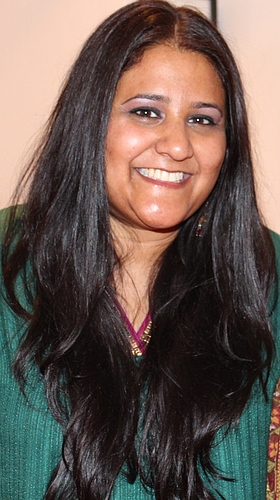
Assistant Professor of Religion Shreena Gandhi’s work will examine the history of U.S. religious organizations and how the formation of U.S. civil society contributed to weakening the state through anti-government rhetoric and played a role in creating and sustaining structural and racial inequity while seemingly working for justice.
During the Second Great Awakening (1820s-1840s), Protestants used the spirit of revivalism to move into the business of organizing around various causes. At one point during the mid-1800s, the combined operating budgets of the “Benevolent Empire” were larger than that of the federal government. My project will be to reexamine this history through the lens of social justice. In particular, I want to pay attention to how the formation of U.S. civil society contributed to weakening the state through anti-government rhetoric and how these organizations played a role in creating and sustaining structural and racial inequity while seemingly working for justice.
Previously, my scholarly work on yoga, Ayurveda and Hindu murtis has allowed me to examine the role of material culture in the practice and study of religion, which has led me to follow the networks of capitalism that are so very present, yet so often ignored, in religious practices and beliefs. For this fellowship, I want to move in a different direction; one that takes me away from Hindu traditions and one that allows me to investigate the history of religious (primarily U.S. Protestant) organizations. What will connect my past and future research projects is my attention to capitalism and the networks that spiral out of our present economic system.
Alyce Brady, PhD
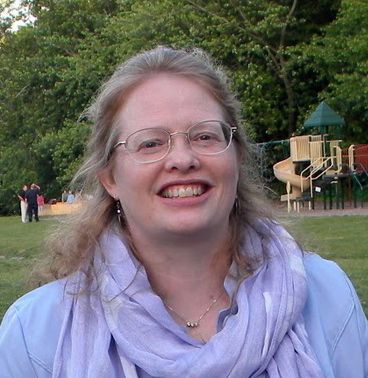
Associate Professor of Computer Science
In the wake of a brutal and destructive 10-year civil war that ended in 2001, the nation of Sierra Leone is in the process of rebuilding its governmental and educational infrastructure. The country’s two major universities, the University of Sierra Leone and Njala University, have an important role to play, providing education, supporting research, and producing alumni who have been, and will continue to be, instrumental in the rebuilding of their nation.
In the furtherance of this mission, both universities have identified the computerization of academic records as one of several critical components in institutional capacity building. Computerized, accessible academic and administrative records will enable the universities to better establish and communicate educational requirements, monitor and support students’ educational progress, forecast programmatic and institutional needs, and assess and document progress toward institutional goals.
The project transformed an experimental software project that provides generic database access into a robust, sustainable, open-source system for computerized academic record-keeping.
I worked in partnership with interested staff and students from Njala University, the University of Sierra Leone, and Kalamazoo College to:
- Identify the specific record-keeping and procedural needs of the two Sierra Leonean universities
- Develop custom tables and software specific to Registrar needs,
- Enhance software elements related to data integrity, privacy, and security, and
- Develop mechanisms and processes to support the project as a continuing, sustainable open-source project.
Regina Stevens-Truss, PhD

Kurt D. Kaufman Associate Professor of Chemistry
Served as a Kalamazoo College Faculty Fellow, during the fall of 2014 focusing on the ongoing Science and Social Justice Project, a partnership with Harvard Medical School that aims to gather information on current social justice practices in the science, technology, engineering and mathematics (STEM) fields to be fed into the ACSJL’s online resource center, Praxis Center. Stevens-Truss is a medicinal biochemist who has been on Kalamazoo College’s faculty since 2000. In addition to teaching and conducting research into Alzheimer’s disease, she is involved in community outreach programs intended to attract young people—especially girls and students of color—to STEM fields.
Amelia Katanski, PhD
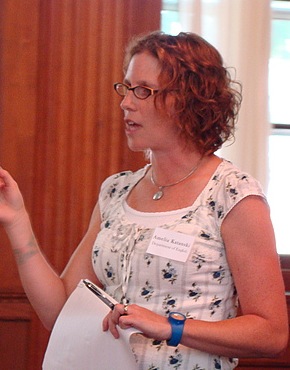
Associate Professor of English Amelia Katanski explored the intersections among American Indian tribal sovereignty, food sovereignty, and storytelling, focusing on Great Lakes region Native communities.
Indian tribes strongly assert the centrality of tribal sovereignty — or the right to self-determination — to their standing and identity as distinct peoples and nations. Indian nations have had to defend their sovereign status against continual threats from, initially, European colonizers of the Americas and, later, US and state governments. Today, American Indian households are twice as likely as other households in the US to experience food insecurity and hunger. American Indian people are also twice as likely to be diagnosed with diabetes — and twice as likely to die from medical problems related to diabetes — as non-Hispanic white Americans. These imbalances indicate that food security — and, more specifically, food sovereignty — remains a major concern for Indian communities, a concern that is centrally connected to the health of Indian communities, to processes of decolonization, to assertions of tribal sovereignty, and, therefore, to issues of social justice. The project I propose will explore the intersections among American Indian tribal sovereignty, food sovereignty, and storytelling, focusing on Great Lakes region Native communities. This project would have three interrelated facets: first, to read the literary texts of Great Lakes Indian communities for the stories they tell about food cultivation, its role in cultural transmission ,and its significance in building or maintaining tribal sovereignty; second, to gather and share the stories of Great Lakes American Indian communities that are working toward food sovereignty by preserving knowledge and claiming control over food production; and third, to bring together Great Lakes American Indian activists and Kalamazoo College/Kalamazoo-area food activists to learn from one another’s stories and strategies for developing strong and just local food systems.
Kiran Cunningham, PhD
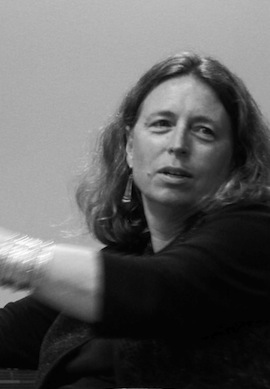
Professor of Anthropology Kiran Cunningham re-established long term partnerships between K College and universities and NGOs in Sierra Leone, in the wake of that country’s brutal civil war.
In the wake of a brutal and destructive 10-year civil war that ended in 2001, the nation of Sierra Leone is in the process of rebuilding its governmental and educational infrastructure. Moreover, much of this rebuilding is being done with horrors and injustices of the war guiding the work. For example, Fourah Bay College now has a certificate in Peace and Conflict Studies as part of its curriculum. Njala University, with the infusion of millions of dollars from UNESCO to rebuild its campus and curriculum in the wake of its complete destruction during the war, has expanded it prior focus on agriculture and education to include, for example, a school of Community Health Sciences, and it has incorporated a focus on community service into the core of its mission. Moreover, NGOs such as the Center for Development and Security Analysis (CEDSA) whose mission is to “contribute to the realization of sustainable development, peace and stability in Africa through informed research, capacity building and advocacy,” have been created. Finally, a new private university, the African Peace University, currently being developed with UNESCO funds, will soon be established in Freetown. These institutions, like Kalamazoo College, are all engaged in the process of educating for social justice and developing social justice leaders. Moreover, they are doing it out of the kind of urgency that comes from a recent and still very vivid experience of the consequences of structural, institutional, and interpersonal injustice. The project I propose is to re-establish Kalamazoo College’s longstanding relationships with Fourah Bay College and Njala University and establish new relationships with CEDSA and the African Peace University to create mutually beneficial partnerships that will further the social justice leadership work of both Kalamazoo College and these Sierra Leonean institutions.
Sarah Lindley, MFA

Associate Professor of Art Sarah Lindley explored ways in which artists and the study of art can be more deeply engaged with issues of justice at Kalamazoo College and in the city of Kalamazoo during her fellowship.
Art, by its very nature, challenges us to see and question our surroundings, experiences, and choices. At its best, the creation of art incorporates an awareness of the senses and a critical investigation of materials, space and cultural context. Serious appreciation of art forces us to ask more questions than we can answer and recognize complexity in the world around us. Even at its most basic level, the creative process requires an acquaintance of self with material, which promotes cognitive and physical development. In a liberal arts academic setting, these concepts are readily accepted and often celebrated, but we need a more sustained conversation about the significance of art to all individuals, regardless of age, socio-economic status or cultural background. During my time as a faculty fellow in the Arcus Center, I will focus on multiple interpretations of social justice in the arts by comparing and contrasting artists whose works focus on social responsibility, civic engagement, and/or activism. As part of my project, I would like to collaborate with the senior art majors and studio SIPs to establish a studio space off-campus in Kalamazoo, perhaps in a downtown location so that we can build on our relationships with community partners.
E. Binney Girdler
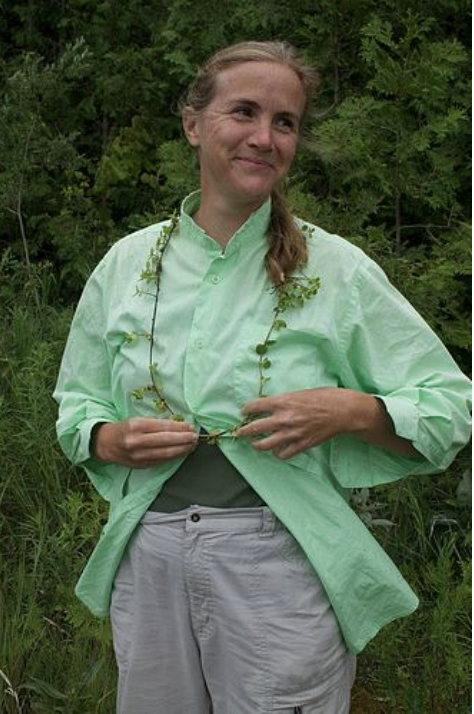
Professor of Biology; Co-Director of Environmental Studies Program
Project Title: Piloting an alternative on-ramp course for STEM education at Kalamazoo College
Project Summary: Like many institutions, at Kalamazoo College, the proportion of traditionally underrepresented students (American Indian, African American, Latinx, and first-generation students) that graduate with a major in one of the sciences is lower than their majority (White, Asian, and continuing generation) peers, despite starting college with equivalent levels of interest in science-based careers. The barriers to retention for these students in STEM fields start the moment they walk into our introductory classrooms. Traditional introductory courses with narrow disciplinary focus may not feel immediately relevant to students from non-majority backgrounds, nor do such students always feel that they belong in those classes.
For my Arcus Faculty Fellowship project, I am developing an interdisciplinary introductory-level science course that focuses on a central theme that intersects social justice, e.g., Feeding the world; Inequities of climate change; Toxic environments and Race. I plan to approach this theme from multiple disciplinary perspectives– mathematics, computer science, physics, chemistry, and biology– but will constantly refer back to the social relevance of the topic. Social justice will be addressed in the content of the proposed course, the intended audience of this course and in changing the institutional approach to serving our increasingly diverse student body. I will pilot this course, which will include an experiential component, in the Fall of 2019 and again in the Winter of 2020.
